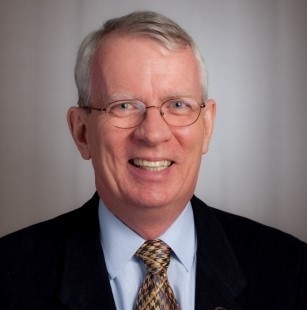
ETHICS, to me, is, very simply, “doing the right thing for the right reason,” writes Kirk Hazlett. It is easy, and deceptively harmless, to take the seemingly less-complicated way out…ignoring potential consequences and impacts on others. So often, as a public relations manager for an organization in the past, I have heard someone higher up the chain say something to the effect of “They won’t know what we’ve done, so it doesn’t matter.” That attitude has led to some spectacular disasters as a result. Ethical thinking and behavior requires that you, as an individual, have a clear vision of how you wish to be viewed by others and, as a result, make decisions and take actions that will serve to enhance those perceptions and, as a result, others’ trust in you. As the quotation advises: “To thine ownself be true.”
Continue reading or listen here:
Public relations is very much about “positive public perceptions,” and ethical thought and action are key to instilling and reinforcing that reality. Our responsibility as public relations professionals is to inform our publics – external and internal – when anything occurs that could possibly affect them. As Ivy Ledbetter Lee, arguably the “Father of Public Relations,” said so clearly in his “Declaration of Principles” (1905): “In brief, our plan is frankly, and openly, on behalf of business concerns and public institutions, to supply the press and public of the United States prompt and accurate information concerning subjects which it is of value and interest to the public to know about.” With the ever-evolving means of public communication today, Mr. Lee’s words ring even more true. Better to be open, honest, and sincere than hanging one’s head in shame.
The public relations industry has worked diligently over the years to codify the ethical principles introduced so clearly by Ivy Lee more than 100 years ago. Not only do the national and international associations representing public relations professionals have published and diligently updated ethical codes that provide guidance; they also actively work to educate and remind their members of those guidelines. Local PR chapters, as well as the national associations, provide regular programming to provide information and relevant updates to ensure that all members, as well as the general public and the media in many instances, are fully aware of their responsibilities. This truly is a proactive effort that ensures a full recognition of both the ethical intent and the ethical action of public relations professionals is recognized and (hopefully) appreciated.
Sadly, in spite of our actions and deeds as ethical public relations professionals, there will always be those who take what they perceive as the “easy way out” or are more concerned with their own success than the beneficial outcomes for their publics. There are no punitive consequences for unethical behavior – only the resulting distrust of the public when unethical behavior is revealed. We have witnessed this all too often in public revelations about senior government and/or corporate figures. Sadly, again, nothing seems to be done to respond to those actions. The only recourse for those of us who truly embrace ethical thought and action is to ensure that those who look to us for “leadership by example” see clearly what ethical thought and action is and means.
A public relations professional-turned-public relations professor, Kirk Hazlett, APR, fellow PRSA, is adjunct professor of communication at the University of Tampa (FL). He is a member of the Public Relations Society of America’s Board of Ethics and Professional Standards as well as of PRSA’s College of Fellows Communications Committee. In addition, he serves as PRSA Tampa Bay Chapter’s first Ethics Officer. Before moving into academia, Hazlett practiced nonprofit and government public relations and marketing for more than 35 years in the US as well as Asia. During his professional career, he managed communication programs for healthcare and member services organizations as well as for the US Army and US Air Force in Vietnam, the Philippines and the United States. He also provided consulting services for both the Manila and the Singapore Red Cross.
© 2024 Strategic. Registered in Ireland: 659272